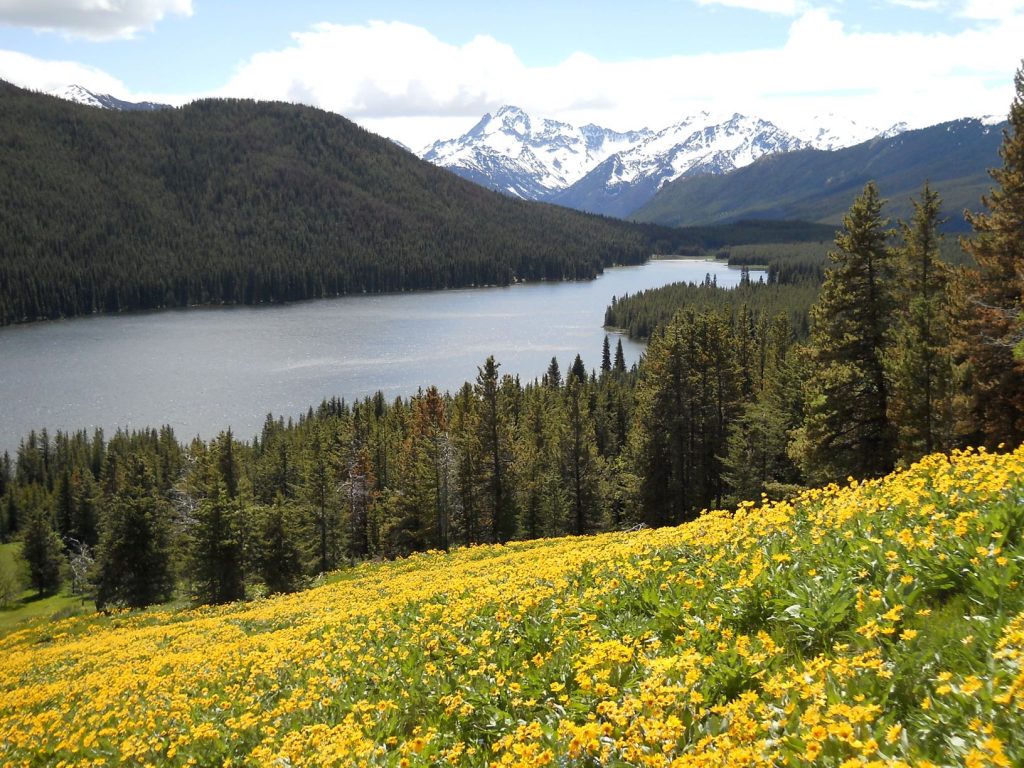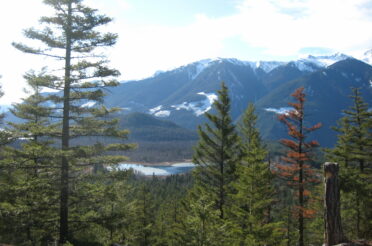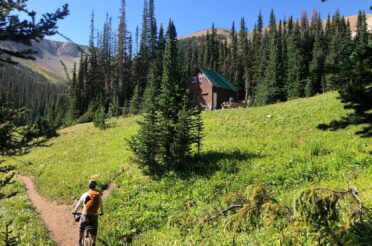The Impacts of Climate Change on BC's Ecosystem

This blog story is about conservation and stewardship of the land, today we would like to specifically introduce you to the topic of climate change impact, showing you how we are taking action to address this issue, and empower you to take action as well.
Climate change and its effects on society and nature are becoming more and more visible each day. In order to better understand climate change and its impact, it is important to identify all the variables that matter and their inter-linkages. After the identification process, one can analyze the situation and develop an action plan in order to solve the problems at hand. A New Climate for Conservation Nature, Carbon and Climate Change in British Columbia by Dr. Jim Pojar, is an example of this type of research. In his paper Pojar discusses how climate change impacts ecosystems, how biodiversity can adapt to climate change, how we can mitigate climate change, and presents key recommendations on how to develop a conservation and climate action strategy plan for British Columbia.
Climate change in British Columbia is resulting in warmer and wetter winters, and dryer summers. According to Dr. Pojar, these changes lead to significant and often dangerous impacts on the health of BC’s ecosystems. The warmer and wetter climate has been correlated with several outbreaks of diseases, pests, defoliating insects, and extreme drought, damaging native tree species like willow, yellow-cedar, white bark pine, western redcedar, paper birch, and aspen. Additionally, Pojar mentions that at least eight bird species were found to have different migration patterns such as earlier arrival and later departure, and extend their range further north. Another example of climate change impacts in the article is the impaired health of different sockeye salmon populations due to higher water temperatures. The temperatures are becoming too high for the salmon to survive in some locations, like the Fraser River and the Pacific Ocean. Adult spawners are also more susceptible for diseases when water temperatures are high.
Almost no one doubts climate change any more, the evidence is far too clear. But how it will change our environment remains a question for many people. Pojar’s article made it very clear that climate change alters our natural environment, degrades biodiversity, and damages the overall health and stability of our planet’s ecosystems. To preserve our planet, not just for ourselves, but for the generations to come, we need to take action. We must adapt to the changes already set in motion, and we must be prepared to mitigate future impacts. British Columbia is a biodiversity hot-spot, a place where there is still pure wilderness. Because of these unique characteristics, BC can act as a role-model and lead global societies towards sustainable nature management with regards to climate change. But first we must understand that climate change is a global issue that affects everyone. We all need to join forces in order to work towards the common goal: take care of nature so that nature will take care of us.
Based on his research, Dr. Pojar points out 6 recommendations to tackle the effects of climate change on our natural environment.
The first recommendation is that we must integrate conservation strategies and climate change action strategies. This is important because it recognizes that conserving ecosystems plays a key role in adapting to and mitigating climate change.
Secondly, Pojar points out the importance of habitat connectivity in the face of climate change and suggests conservationists broaden core protected areas to create a conservation network.
Third, the author suggests the Canadian government needs to reform the legal structure of conservation laws. This is necessary to create new partnerships, new tools and new incentives. Currently, these laws do not integrate climate change strategies with nature conservation strategies, which is a loss of potential.
Fourth, Dr. Pojar recommends all sectors should adopt stewardship practises, to take responsibility for protecting their area and to keep as many areas connected with each other to support wildlife migrations.
The fifth recommendation that the author puts forward is that BC should play a leadership role in protecting biodiversity and managing climate change. Not only because British Columbia’s ecosystems are uniquely biodiverse, but also because BC has fortunate legal, social, and economical structures to develop these strategies.
Lastly, Pojar reminds us of the absolute importance of establishing the principle that we are all part of nature and that our survival depends on nature’s survival.
The Chilcotin Ark Institute strives to live up to all six recommendations by analyzing the impact of climate change on the Chilcotin Ark, identifying and protecting key species, protecting core habitats as they change over time, and emphasizing connectivity in our conservation efforts. Additionally, we work together with stakeholders, all governments (federal, provincial, regional), and First Nations to empower everyone to be stewards of the land. This integrative approach leads to innovative tools that could function as a role model for surrounding areas. We are deeply aware that we are part of our natural environment, and because we depend on its resources, we take responsibility for managing them sustainably. We encourage you, no matter where you live or what your background is, to take responsibility for our shared planet as well. Join us on this effort!
If you want to know more about our research and conservation projects or learn how you can get involved and make a difference, check out the Chilcotin Ark Institute website!



